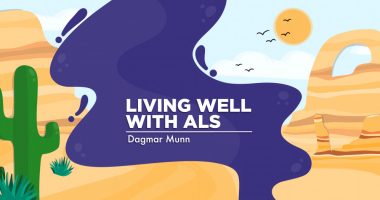Is Your Doctor Hurting Your Mental Health? Why You Need an Emotionally Intelligent Doctor

“If I was a broken clock, would you throw screwdrivers and bolts into my tool shed?”
– “Tool Shed” by Chaya Nemiccolo
What is emotional intelligence?
Patients can easily learn about the traditional aspects of their doctor’s qualifications with a quick internet search. However, it’s much harder to learn about a doctor’s emotional intelligence. Emotional intelligence is the ability to think and gather information about emotions, and then to use that information to achieve goals, which may include managing one’s own or others’ emotions, like staying calm or deciding how to share news.
Why does it matter?
Whether your doctor practices emotional intelligence will make an enormous impact on the quality of your care and mental health. A doctor lacking emotional intelligence can make you feel unheard, devalued, or even traumatized. Emotional intelligence in doctors is an absolute must, just as vital as the medical degree that allows them the privilege of being in the room with you.
What does emotional intelligence look like in action?
Neurologist Dr. Goslin is an expert at practicing emotional intelligence. The first time we met, she wanted to know all about me way beyond my ALS story. Then she asked me about my emotional state and medical goals. I told her I felt positive, ready to fight and survive this disease.
Her response? “I think that’s a great goal, and with the way research is going, we definitely have reason to hope.” She respected my feelings without making promises she couldn’t deliver. Dr. Goslin used emotional intelligence to achieve her goal of designing a treatment plan for me, not just my disease. Now every time I see her, I feel empowered. She is an important part of keeping my mind healthy.
In my blog, How I Live Now: Life with ALS, which I invite you to read, I recently posted the story of an experience I had with a surgeon who lacked emotional intelligence. The interaction triggered my depression and PTSD symptoms.
When I decided to write about emotional intelligence, I asked Dr. Goslin if I could interview her. She agreed with enthusiasm.
At the beginning of the interview, she said, “I think that emotional intelligence, as you have defined it, is one of the most important aspects of being a good clinician. Acknowledgement of the importance of emotions is part of treating the whole person and not just the disease.”
She went on to explain, “A lot of emotional intelligence comes from experience and a willingness to be open to emotions, both mine and others. When emotions arise that would typically be unpleasant or uncomfortable, I tend to allow them to flow over me. I sit with them without judging them as negative. I then use awareness of the emotions to help determine what the patient finds most important to have addressed and how best to do this.”
What she just described, a state of being completely aware of the present and all the thoughts, feelings, and physical sensations it holds, is called mindfulness.
Being a doctor who practices emotional intelligence sounds difficult, even draining, but Dr. Goslin can’t imagine treating her patients without interacting with their emotions.
“I believe that patients’ emotional response to disease and to their care factors heavily into how effectively they can be treated,” she said. “Fear and anger are two common emotions that occur in the setting of illness and that can impede medical treatment. Often when a doctor can recognize and address these emotions, roadblocks to treatment can be removed.
“I think that use of emotional intelligence results in a closer patient-doctor relationship and builds a level of trust and openness.”
How can you find an emotionally intelligent doctor?
Dr. Goslin, of course, has the answer. “Web-based assessments of doctors can reflect their emotional intelligence because… patients have greater satisfaction when treated by a doctor with emotional intelligence. Of course these assessments can be also be done by patients who are unhappy with a doctor for unrelated reasons, like the doctor wouldn’t prescribe narcotics.”
Keeping this in mind, I recommend using the following sites for finding reviews: healthgrades, RateMDs, Yelp, and Zocdoc. Once you have a list of doctors you like, call each doctor’s office or email the doctor directly to ask if he or she follows what I call “The Goslin Equation”: mindfulness + meditation.
Need help planning what to say in your phone call or email? Try this:
“I am interested in working with a doctor who practices emotional intelligence. How is emotional intelligence part of the way you treat patients? Can you tell me if you have had any mindfulness or meditation training?”
Good luck!
***
Note: ALS News Today is strictly a news and information website about the disease. It does not provide medical advice, diagnosis, or treatment. This content is not intended to be a substitute for professional medical advice, diagnosis, or treatment. Always seek the advice of your physician or other qualified health provider with any questions you may have regarding a medical condition. Never disregard professional medical advice or delay in seeking it because of something you have read on this website. The opinions expressed in this column are not those of ALS News Today or its parent company, BioNews Services, and are intended to spark discussion about issues pertaining to ALS.







Comments
Charlie
"...ready to fight and survive this disease."
I think it would be helpful to all those families tortured by ALS to know how Rachel survives ALS. To my knowledge, ALS is rapidly degenerative and fatal.There are no effective treatments and the patient has no control over the degenerational pace of motor neurone failures.
So how does Rachel intend to survive ?
Does she know something we do not?
Rachel Doboga
Hi there. I definitely don't have any secret knowledge that could help the ALS community, though I wish I did because I would share it in a heartbeat to stop all our suffering. I miss using my limbs, being able to eat and speak, but I am staying positive because I believe that new treatments for ALS are on the way. My hope is that they slow down the disease enough that I can survive to see a cure. I am willing to go on a ventilator while I wait. In the meantime, I just do regular maintenance stuff to keep "in shape" as much as possible, like breath stacking with the cough assist and getting interventions like a feeding tube before I absolutely needed it to prevent the strain weight loss puts on an ALS body. Best, Rachel
Rachel Doboga
PS Do you take vitamin D? That has been shown to slow down progression. Also, in addition to using the cough assist to slow lung decline, there is an implant called a diaphragmatic pacemaker that is a bit experimental that you can try. It has shown positive results in the United States, but testing in France didn't show any effect. I am still thinking about it.
Glynis Murray
Charlie,
I think Rachel just basically explained how she fights this horrible disease. With her own mindful intelligence. For all the articles that I have read the that she has written, you can see her positive attitude shine through. She seems to have found an inner Grace that helps her fight this disease. I've seen her write what seems to be a motto for her, Hope not Fear, and that seems to be the way she has survived it so far! I, too, have hope for her and all my PALS! GOOD LUCK TO YOU ALL! ?
Christi Spain
You are right on the money. When my husband was diagnosed in March 2016, I made it my goal that summer to find him a top dog ALS doctor after his Vanderbilt doctor made the comment, "start checking things off your bucket list." What? Seriously? I found our top dog doc in Dr. Merit Cudkowicz, Massachusetts General and 2014 ALS Humanitarian Award winner. She is incredible. We live near Nashville and we do televisits with her every 4 months. It takes 3 days to a week for our local docs to respond to our questions. Merit responds immediately, usually within the hour . . . Even during the weekend. I can get tears in my eyes when I think of her compassion for her patients. Thank you for this article. No one deserves to be treated without compassion and emotional intelligence.
Rachel Doboga
I am so glad you found a doctor who who sounds like a real treasure! At my previous clinic, a nurse asked me how I felt about the fact that I would never grow old. Um, is there really made more than one response to that question? Another person there told me that a positive attitude makes no difference. I was pretty shocked. What about quality of life? What about hope? I couldn't believe he didn't consider how I am living. He seemed to only be focused on the "inevitable" outcome. I put inevitable in quotes because I have not given up on a cure that will save my life, and the rest of us suffering from this monstrous disease. Keep advocating for your husband, and never give up!
Peggy H
Hi Christie.....I am going to the VU ALS clinic for my first visit this Friday. I have called and requested to be changed to Dr. L from the "top dog doc". When I met the "top dog doc" in July, he gave me very little encouragement. I was so disappointed. Thank you for validating my thoughts. Also, I have heard positive support about the Mass General ALS team!
In wish we can chat, while I still have a voice! All the best!
Darlene Emerson
Emotional intelligence is very important. I went to a doctor who basically told me that "there is no cure for ALS" when I asked him about helping me feel better. Needless to say, I found a new doctor and my family doctor is an angel from heaven. I want a doctor that will tell me that he's in this fight with me and will do his best to help me feel better!
Michelle Kafafi
I had a Dr at the Mayo Clinic who was devoid of any feelings. She Dr Margharita Milone who told me I was going to die of ALS in 1-2 years. Then she walked out. She is the worst Dr I have ever seen. God forbid she has other patients
Diana Garcia
Can other ALS patients or their caregivers share the names of doctors they have found that respond well to their emotional needs. The last one I saw at an ALS clinic told me that ALS would be the last disease that there would be a cure for so there was no use hoping for one.
Maryjane McLaren
2 yrs ago, Head of Neurology at Baylor College of Medicine in Houston, said to my 74 yr old husband, “You have ALS — 2-5 years to live. Any questions? “ and left us alone. Prominent Neurologist & ALS Clinic back home offered tools to help as he declined, as they were certain he would, but nothing positive. After extensive personal research, we elected donor stem cell treatments injected into the spine at San Javier Hospital in Guadalajara. There are many stem cell scams — this is not one! Nine treatments later, at 6 wk intervals, he has had no decline in function or motor skills. Only his throat is affected, thus requiring a feeding tube, and his speech is somewhat slurred, but not diminished.
Our biggest mistake has been assuming every little thing wrong was what we feared most — progression of ALS — when he simply had cold or flu symptoms or a tooth cavity that could be easily treated. Fortunately our Docs at San Javier look past the disease and ask the important questions to treat the whole person. They encourage us to live stress free and treasure every day; and while they make no promises, the result of working with these fine doctors has been to give us hope and courage to live a normal life.